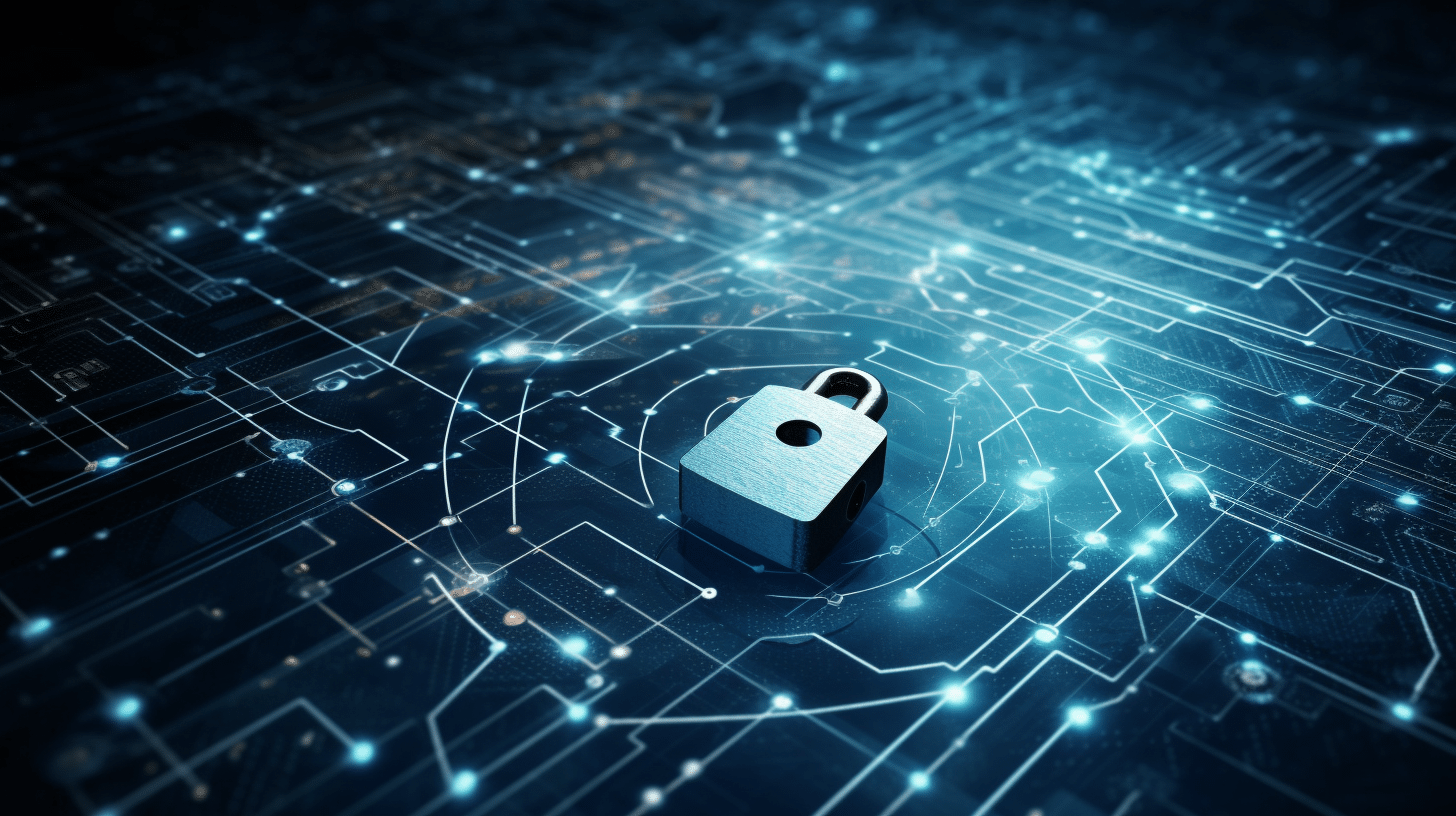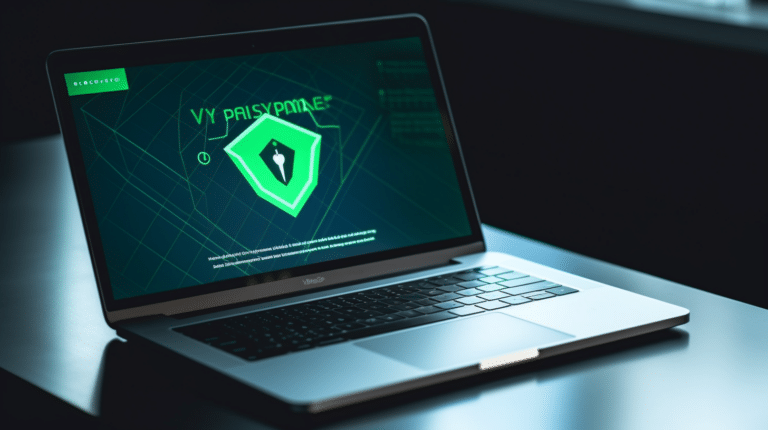As we continue to rely on the internet for various tasks and communication, online privacy has become an essential aspect of our digital lives. One way to protect your privacy online is using a Virtual Private Network (VPN). A VPN encrypts your internet data, ensuring that your online activities remain secure from prying eyes. By connecting to a VPN server, your data travels through an encrypted ‘tunnel,’ making it difficult for hackers, ISPs, or government agencies to access and monitor your information.
Understanding how VPN encryption works is crucial to comprehending the level of security provided by a VPN service. Encryption is the process of scrambling data in a way that can only be deciphered using a specific algorithm or key. A VPN uses encryption algorithms and complex protocols to secure the data transmitted between your device and the VPN server. This ensures that your online privacy remains intact, even when using unsecured public networks or when browsing otherwise insecure websites.
Key Takeaways
- VPNs use encryption and protocols to protect your online privacy by scrambling your data
- The level of security depends on the encryption algorithms, protocols, and authentication methods used
- A balance between encryption strength and speed is essential for an optimal VPN experience
Understanding VPN Encryption
VPN encryption is a crucial aspect of maintaining online privacy and security. By employing encryption techniques, a VPN ensures your data is scrambled and unreadable to unauthorized entities.
The basic process involves encrypting your internet data before it leaves your device, then sending it through a secure tunnel, and finally decrypting it upon reaching the VPN server. This adds a layer of security to your internet connection and prevents unwanted snooping or data theft.
The efficacy and strength of VPN encryption largely depend on the type of protocol used. A few common VPN protocols with varying degrees of security are OpenVPN, L2TP/IPSec, and PPTP.
- OpenVPN is a popular, open-source protocol offering robust security and flexibility. It uses the OpenSSL library for encryption, allowing it to support various cryptographic algorithms like AES, Camellia, or Blowfish. Additionally, OpenVPN operates over both TCP and UDP, making it versatile and widely compatible across platforms and devices.
- L2TP/IPSec is a protocol combination that provides a balance of speed and security. L2TP (Layer 2 Tunneling Protocol) is responsible for creating the VPN tunnel, while IPSec (Internet Protocol Security) encrypts the data within that tunnel. AES encryption is typically used in this protocol, which is the current industry standard.
- PPTP (Point-to-Point Tunneling Protocol) is one of the oldest protocols and known for its fast speeds. However, it has significant security weaknesses and is generally not recommended for users seeking strong privacy protection.
When selecting a VPN, it’s essential to consider the encryption methods employed and the supported protocols. The chosen combination will directly impact the overall security, privacy, and performance of your VPN connection. Keep in mind that the best VPNs offer a variety of protocol options to cater to different user needs and preferences.
How Does VPN Protect Your Privacy
A VPN (Virtual Private Network) is a powerful tool that helps protect your privacy while using the internet. It secures your online activities by encrypting your data and hiding your IP address, making it difficult for anyone, including hackers and ISPs (Internet Service Providers), to track your browsing activity or access your personal information.
When you use a VPN, your device, or the VPN client, establishes a secure connection to a VPN server. This server acts as an intermediary between your device and the websites or services you want to access. Your web traffic is encrypted and routed through this server, which assigns you a new IP address, masking your true location and making your online activity anonymous.
This secure tunnel also protects your data when using public Wi-Fi networks. Public Wi-Fi hotspots are often unencrypted, leaving your information vulnerable to hackers and others looking to intercept your data. By encrypting your connection, a VPN ensures your online activities remain secure even when using these public networks.
VPNs can also help bypass regional restrictions and censorship imposed by governments or streaming services like Netflix. By connecting to a VPN server in a different country, you can appear as though you are accessing the internet from that location. This functionality allows you to bypass geo-restrictions and enjoy content that would otherwise be unavailable to you.
Another useful feature of many VPNs is the kill switch. In the event of a sudden disconnection from the VPN server, the kill switch will instantly cut off your internet connection. This prevents your real IP address and unencrypted data from being exposed in case your VPN connection drops.
Lastly, using a VPN can also help avoid ISP throttling. ISPs sometimes slow down your connection speed when they detect high-bandwidth activities like streaming or downloading large files. By encrypting your web traffic, a VPN makes it difficult for the ISP to identify and throttle your activities, ensuring a smoother browsing experience.
In conclusion, a VPN offers various ways to protect your privacy, from hiding your IP address and securing your personal information to bypassing restrictions and avoiding throttling. By using a VPN, you can confidently enjoy a safer and more private online experience.
Data Encryption Methods Used by VPNs
VPNs utilize various encryption methods to ensure the security and privacy of data while it is transmitted across the internet. These encryption methods help protect sensitive information from being intercepted or tampering.
Two essential types of encryption are used by VPNs: symmetric encryption and asymmetric encryption. Symmetric encryption uses a single key for both encryption and decryption processes, while asymmetric encryption uses separate keys for encryption and decryption, known as public and private keys, respectively.
One widely adopted encryption algorithm is the Advanced Encryption Standard (AES). AES is a symmetric encryption method that supports key sizes of 128, 192, and 256 bits, with AES-256 being the most robust option. Due to its high level of security and efficient performance, AES-256 is often employed by VPN providers to ensure the privacy of their users’ data.
Another encryption algorithm used by VPNs is Blowfish, a symmetric key block cipher that supports variable key lengths. While not as widely used as AES, Blowfish provides a strong level of encryption and remains a viable option for some VPN providers.
In addition to encryption algorithms, VPNs also implement encryption protocols that dictate how data is secured and transmitted between your device and the VPN server. Some commonly used encryption protocols include:
- OpenVPN: This open-source protocol is versatile and highly secure, using either 256-bit AES or Blowfish encryption.
- IPSec: This protocol can operate in transport or tunnel mode, which dictates whether only the data or both data and headers are encrypted. IPSec typically uses AES or other secure encryption methods.
- WireGuard: This relatively new protocol is designed to be simple, efficient, and secure. It uses cryptographic primitives such as ChaCha20 for encryption and Poly1305 for authentication.
By implementing strong encryption methods and protocols, VPNs can effectively protect your data while it is transmitted over potentially unsecure networks, ensuring you maintain data privacy and security.
Understanding Keys and Authentication
When discussing VPN encryption, it is essential to understand the role of keys and authentication in securing data. In encryption, data is transformed from its original readable form (plaintext) into an unreadable form (ciphertext) using a set of algorithms known as ciphers. This process ensures the confidentiality and integrity of the information being transmitted.
Key Types
There are two types of keys involved in encryption: public and private keys. Public keys are accessible to anyone and are used to encrypt messages. On the other hand, private keys are kept secret by the owner and are used to decrypt messages. This system, known as public-key encryption, offers a secure way of exchanging information without sharing the same key between communicating parties.
In VPN services, however, symmetric-key encryption is more commonly used. This type of encryption involves a single key for both encryption and decryption processes. The keys must be securely shared between the communicating parties to maintain data privacy.
RSA and HMAC Authentication
RSA is one of the most widely used public-key cryptography systems. It relies on the mathematical properties of large prime numbers to encrypt and decrypt data securely. One of its primary purposes in VPNs is during the initial handshake process, where keys are exchanged between the client and server.
HMAC (Hash-based Message Authentication Code) is a method for ensuring data integrity during communication. It involves using a shared secret key and a hashing algorithm to generate a unique code for each message. This code is then checked by the receiving party to confirm the message’s authenticity. In VPNs, HMAC authentication is often employed to verify the validity of encrypted data packets.
Perfect Forward Secrecy (PFS)
An essential aspect of VPN encryption is Perfect Forward Secrecy (PFS). PFS is a property that ensures that even if a private key is compromised, previous encrypted sessions remain secure. This is achieved by using different keys for each session or frequently changing keys during communication. PFS offers an added layer of security for VPN users, making it more challenging for attackers to access historical data.
Key Length and Security
In encryption, the key length refers to the number of bits in the encryption key. A longer key length means more possible combinations, making it significantly harder for attackers to break the encryption using brute force methods. Generally, higher key lengths offer better security. However, it’s important to balance key length with computational resources, as longer keys require more processing power for encryption and decryption processes.
By understanding keys and authentication in VPN encryption, users can make informed decisions about the security and privacy of their online communications. With the right choice of encryption protocols, ciphers, and key management systems, a VPN can effectively protect data without sacrificing performance.
Role of VPN Protocols in Data Encryption
Virtual Private Networks (VPNs) ensure secure online communication by encrypting data and providing a private tunnel through the internet. One of the crucial components of this protection mechanism is the VPN protocol, which sets the rules for how data is transmitted and encrypted between devices. Different VPN protocols have distinct strengths and weaknesses, and choosing the right one is essential to maintain a balance between performance and security.
- OpenVPN is a popular open-source VPN protocol known for its high level of security, flexibility, and compatibility with various platforms. It uses both Transport Layer Security (TLS) and Secure Sockets Layer (SSL) for data encryption and key exchange, ensuring a safe connection. This protocol can also bypass firewalls and is suitable for networks that require robust encryption methods.
- Point-to-Point Tunneling Protocol (PPTP) is an older protocol that’s known for its simplicity and ease of use. However, it has weaker encryption compared to other modern protocols. Its advantage lies in fast performance, but due to its insufficient security, it is not recommended for keeping sensitive data safe.
- Layer 2 Tunneling Protocol (L2TP)/IPsec is another commonly used protocol that combines the best features of PPTP and Layer 2 Forwarding Protocol (L2F). It provides a secure tunnel by encapsulating data packets in an L2TP tunnel and then encrypting them through IPsec. L2TP/IPsec offers greater security compared to PPTP but sometimes suffers from slower speeds due to its double encapsulation process.
By using the right VPN protocol and encryption method, a VPN can create secure tunnels between devices and the internet, safeguarding data from interception and tampering. It is essential for users to be aware of differences in protocols and choose the one that best fits their security and performance needs.
Dealing with Security Threats
VPN technology plays a crucial role in enhancing online security and privacy, particularly when dealing with potential security threats. By encrypting your personal data and browsing activity, a VPN can protect you from hackers and identity theft.
Encryption is the primary function of a VPN, as it converts your data into a code that is unreadable to unauthorized parties. This secure tunnel, created by the VPN client, shields your data as it travels between your device and the VPN server, preventing hackers from intercepting and accessing it. By employing strong encryption methods, VPNs effectively reduce the risk of fraud and compromise.
Another valuable aspect of VPN technology is authentication. When you establish a connection to a VPN server, both your device and the server verify each other’s identity using digital certificates or pre-shared keys. This ensures that the VPN service can be trusted, and safeguards the integrity of your connection.
In addition to encryption and authentication, some VPN providers offer additional features to bolster your online privacy, such as zero-logging policies. These policies ensure that the VPN service does not store or share your browsing history or personal data, further reducing the chance of your data being compromised or shared with third parties.
To enhance your privacy, it is recommended to use a VPN client that supports robust security protocols such as OpenVPN or WireGuard. These protocols offer advanced encryption and secure key exchange methods, providing a high level of protection against external threats.
Ultimately, using a VPN is an important step towards safeguarding your online privacy and protecting your personal data from potential threats. By encrypting your data, employing strong authentication methods, and selecting a VPN provider with a zero-logging policy, you can mitigate the risk of identity theft, fraud, and other cyber threats while browsing the internet.
Reviewing Top VPNs and Their Encryption Standards
When it comes to VPNs, encryption plays a crucial role in protecting your data and ensuring privacy. In this section, we will highlight the encryption standards used by some of the top VPN providers, including NordVPN, ExpressVPN, and Surfshark.
- NordVPN is known for its strong encryption and security measures. They use the Advanced Encryption Standard (AES) with a key length of 256 bits, commonly known as AES-256, which is considered one of the most secure encryption methods available. NordVPN combines this with the IKEv2/IPsec and OpenVPN protocols to provide a secure and reliable VPN connection.
- ExpressVPN also employs AES-256 encryption, ensuring a high level of security for users. The VPN service offers multiple protocols, including OpenVPN (both TCP and UDP), L2TP/IPsec, and IKEv2 to accommodate different devices and preferences. ExpressVPN’s robust encryption and wide range of VPN protocols make it a top choice for users seeking secure data transmission.
- Surfshark is another leading VPN provider that leverages AES-256 encryption for secure communications. It offers various VPN protocols, including OpenVPN, IKEv2, and WireGuard. Additionally, Surfshark employs a MultiHop feature, which routes traffic through multiple VPN servers, adding an extra layer of security and privacy.
Data encryption is further enhanced by authentication methods used by these VPN providers. HMAC (Hash-based Message Authentication Code) with SHA-256 or SHA-512 ensures the integrity and authenticity of data transferred between the VPN client and server.
In summary, NordVPN, ExpressVPN, and Surfshark all rely on AES-256 encryption and offer multiple VPN protocols to deliver secure connections. They also use authentication techniques to ensure the integrity and authenticity of data transmitted over their networks. As a user, it’s essential to choose a VPN provider with a strong track record in encryption and security to protect your data and privacy online.
The Trade-Off Between Encryption and Speed
When using a VPN, one of the key factors to consider is the balance between encryption strength and internet speed. The encryption process takes time, which may add noticeable latency to your internet connection. It is vital to know that stronger encryption typically leads to higher latency, but it significantly enhances data security.
Encryption is used to secure your personal data when transmitted through a VPN tunnel. Different VPN protocols exist, and each comes with its unique levels of encryption and speed. Some protocols are known for faster connections, while others prioritize stronger encryption. For instance, OpenVPN offers robust encryption while WireGuard is known for its fast performance.
The strength of encryption depends on factors such as processing power, protocol choice, and VPN server performance. Devices with limited processing power might experience slower connections when using a VPN with strong encryption. However, the lag can be reduced by optimizing the VPN settings or choosing a VPN protocol that favors speed over security when required.
On the other hand, data limits play a significant role in your VPN experience. Some VPNs impose data caps, which can lead to throttling or blocking of certain bandwidth-intensive applications. This factor can affect users who regularly engage in activities like streaming, online gaming, or large file transfers. To maintain a satisfactory internet speed, make sure to choose a VPN that has no data limits.
Lastly, VPNs are known for bypassing government restrictions and enabling users to access blocked content. In certain cases, some VPNs might slow down your connection due to the additional steps the VPN server takes to bypass these restrictions.
In summary, achieving the perfect balance between VPN encryption and speed can be challenging. Users should consider factors such as VPN protocol, server performance, and data limits while selecting a VPN service that aligns with their needs and preferences.
Frequently Asked Questions
How do VPNs encrypt your data?
VPNs encrypt your data by establishing a secure tunnel between your device and the VPN server. This tunnel uses encryption algorithms to scramble your data, making it unreadable by unauthorized parties. To decrypt the data, a specific key is needed, which is only available to your device and the VPN server How-To Geek.
What types of encryption do VPNs use?
VPNs typically use Advanced Encryption Standard (AES) encryption with key lengths of 128 or 256 bits. AES is a symmetric encryption algorithm, meaning the same key is used for encryption and decryption. This encryption method is considered secure and robust, being widely used for securing sensitive data NordVPN.
Can VPNs protect you from hacking attempts?
VPNs can provide a certain level of protection against hacking attempts by encrypting your data and hiding your IP address. However, they are not foolproof, and some hackers may find ways to bypass encryption. For optimal security, it’s essential to keep your software updated and use firewalls along with VPNs Digital.com.
Are VPNs safe for online banking?
Yes, VPNs can enhance the security of your online banking by encrypting your connection and preventing potential eavesdropping on public Wi-Fi networks. However, it’s crucial to use a reputable VPN that offers strong encryption and doesn’t track your online activities.
Do VPNs provide end-to-end encryption?
VPNs provide encryption between your device and the VPN server, protecting your data while in transit. However, once the data reaches its destination, the VPN is no longer responsible for its security. For true end-to-end encryption, you’ll need to use additional security measures like encrypted messaging apps or secure email services.
Does a VPN encrypt data sent to a router?
A VPN can encrypt the data sent between your device and your router if configured correctly. This is known as router-level VPN protection. By implementing a VPN on your router, all devices connected to it will have their data encrypted, providing an extra layer of security CNET.





